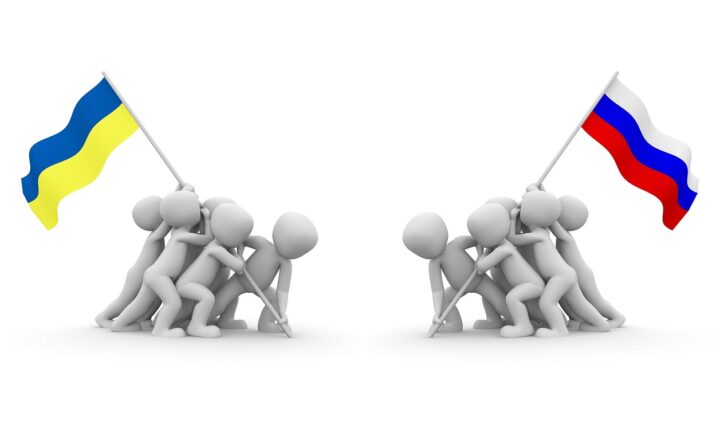
Speeches have the remarkable ability to resonate through time, capturing the hearts and minds of listeners, often stirring emotions and provoking change. Throughout history, there have been speeches that not only altered the course of individual lives but transformed entire nations and even the world. In this article, we will delve into some of the most impactful speeches in history, examining how they changed the course of events and the legacy they created.
1. The Power of Speech: A Brief Overview
The act of speaking has long held power over society; it can inspire hope, prompt action, and foster unity. Speeches become pivotal moments in history, often associated with significant events or transformative movements. The power of a well-delivered speech lies not just in the words but in the passion, conviction, and charisma of the speaker.
2. The Most Influential Speeches in History
Here are five of the most influential speeches that have changed the world’s course:
- a. Martin Luther King Jr.’s “I Have a Dream” (1963)
Delivered during the March on Washington for Jobs and Freedom, King’s iconic speech galvanized the Civil Rights Movement in the United States. “I Have a Dream” articulated the aspirations of millions seeking equality and justice, famously proclaiming, “Let freedom ring!” King’s vision for a racially integrated and harmonious nation inspired hope and spurred activism, ultimately leading to landmark legislation like the Civil Rights Act of 1964. - b. Winston Churchill’s “We Shall Fight on the Beaches” (1940)
As Britain faced the looming threat of World War II, Churchill delivered a series of speeches that bolstered national morale. In this particular speech to the House of Commons, he depicted Britain’s determination to resist Nazi aggression, stating, “we shall never surrender.” His words rallied a nation during its darkest hours, reinforcing resolve and resolve, which was essential for Britain’s survival and eventual victory. - c. Nelson Mandela’s “I Am Prepared to Die” (1964)
During the Rivonia Trial, Mandela delivered a powerful statement from the dock, eloquently discussing the struggle against apartheid. His commit to fighting for freedom and equality galvanized the anti-apartheid movement globally. Mandela’s sacrifice and message of unity inspired countless individuals and led to significant changes in South Africa’s governance. - d. John F. Kennedy’s Inaugural Address (1961)
“Ask not what your country can do for you—ask what you can do for your country!” Kennedy’s inaugural address called for civic responsibility and international cooperation, inspiring a generation to engage in public service. His vision for a new frontier encouraged not only Americans but also people around the world to strive for peace and progress. - e. Malala Yousafzai’s United Nations Speech (2013)
At just 16 years old, Malala addressed the United Nations on her birthday, advocating for education and women’s rights. Her emotional appeal highlighted the power of education to change lives, particularly for girls globally. Malala’s bravery in the face of adversity resonated worldwide, making her a figurehead for the fight for education.
3. Key Elements of Impactful Speeches
While these speeches are diverse in context and content, several key elements contribute to their impact:
- Authenticity: The most powerful speeches reflect the speaker’s genuine beliefs and passions. Audiences can sense authenticity, which builds trust and connection.
- Emotion: Successful speeches stir emotions, whether hope, anger, or courage. Connecting emotionally with the audience elevates the speech’s memorability and impact.
- Clarity of Message: A focused, clear message helps the audience understand and remember the core takeaway. Complex ideas should be distilled into simple, relatable terms.
- Call to Action: History’s most famous speeches often include a motivating call to action, urging listeners to participate in a cause or movement. This call drives change and engagement.
4. The Legacy of History’s Speeches
The impact of these speeches can be seen long after the speaker has ceased to be a public figure. The legacies of their messages continue to resonate, inspiring new generations in various arenas:
- Civil Rights Movement: Martin Luther King Jr.’s dream of equality inspired ongoing efforts for social justice and civil rights around the world.
- Global Activism: Malala Yousafzai’s commitment to education fosters a global dialogue about the right to learn, particularly for girls in challenging circumstances.
- National Pride and Unity: Churchill’s speeches during WWII remain symbols of British resilience during adversity, fostering a sense of national pride and unity.
- Political Inspiration: JFK’s words continue to motivate young leaders and future generations toward public service and active citizenship.
- Anti-Apartheid Movement: Nelson Mandela’s legacy lives on, inspiring movements against systemic injustice worldwide.
Conclusion: Words that Changed the World
The power of words cannot be underestimated. History’s most famous speeches not only reflected the urgency and hope of their time but also catalyzed significant changes in society. They remind us of the profound role speech plays in shaping history, encouraging individuals and communities to rise for justice, equality, and peace. As we reflect on these speeches, we are inspired to harness the power of our voices to advocate for a better future.
To truly appreciate the impact of these words, consider how you can use your voice in your community. Whether through advocacy, volunteering, or simply raising awareness, each of us has the potential to create change and influence the course of history.








